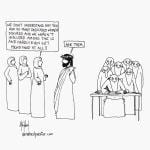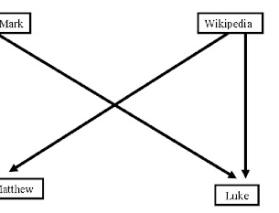I realize there is significant potential in the punny title of this post. The Gospel of Mark ends abruptly, just as its climactic finale seems to be taking off. The author seems to be on a roll as we say in English, and then suddenly stops.
I’ve expressed my view on how the Gospel of Mark probably continued. I am unpersuaded by those who insist that the ending indicates that this premodern author had postmodern sensibilities, inviting us the readers to succeed where ancient disciples failed. The ending as it stands implies that we never could have received that invitation if we take what is written at face value (i.e. in the plain sense—despite my Genesis fandom there is no allusion to Phil Collins’ first solo album here).
Saying the abrupt ending was not how the author intended their work to end calls out for an explanation of what happened. (Let me offer another important aside: it does not “beg the question of how the ending was lost” because that is not how one uses the expression “begs the question.” To “beg the question” is a philosophical term for the fallacy of assuming what you need to prove, and not just a way of saying something “raises a further question”).
Some years ago Peter Gurry on the Evangelical Textual Criticism blog drew attention to the suggestion Daniel Wallace made that the Gospel of Mark might have originally been written and copied on scrolls rather than in the context form in which we know it in all our extant manuscripts. That is certainly possible. But as Gurry points out in response to Wallace, scroll endings were not significantly less prone to damage than codices (think of the covers detaching from your comic books, fellow nerds).
Which leads me to conclude that Mark was on a roll with his storytelling and probably did not stop here regardless of whether his words were originally published on a roll.













